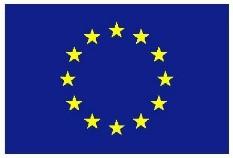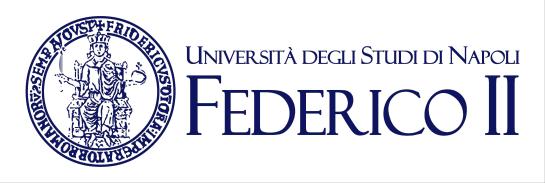The CREA project partners are pleased to announce, the CREA Final International Conference 2019 is scheduled to take place at the Vrije Universiteit Brussel (VUB) on 27th September 2019.
Universitá degli Studi di Napoli Federico II and Vrije Universiteit Brussel are happy to invite you to CREA final conference where final findings and results of the CREA project will be presented and other cutting-edge topics of state of play and challenges of algorithmisation of dispute resolution will be debated
This International event aims to discuss and disseminate the introduction of new mechanisms of dispute resolution as an assisting tool in legal proceduresfor judges, lawyers and mediators with the objective of reaching an agreement between the parties; in some situations, it could be used directly by citizens, as well.
Find the programme here: CREA Final Conference 27.09.2019 program schedule (245.35 KB) "pdf"
Date & Venue:
The CREA Final International Conference is hosted by the Vrije Universiteit Brussel (VUB) to take place on 27th of September 2019 in the Belgian Senate (Rue de Louvain 7, 1000 Brussels, Belgium).
Following the Conference, you are invited to join us at the “Reception drinks” from 17h00 onwards at: Cercle Royal Gaulois, Rue de la Loi 5, 1000 Bruxelles
Registration:
Please kindly note that, participation at the Conference is free (no registration fee). However, the participants are expected to register online in advance and cover the costs of their travel and accommodation. Due to limited capacity of Conference room, participants will be admitted on first come (first registered) basis. The successful online registration shall be regarded as confirmation of admission. Online registration will be stopped when capacity limit will be reached.
To register online, please click here.
Looking for more information?
For any additional inquiries concerning the Conference theme, registration or any other relevant questions, please contact Sajedeh Salehi at: seyedeh.sajedeh.salehi@vub.be
Changes:
The Organizer reserves the right to change the original schedule in exceptional circumstances. Should the event be cancelled for previously unforeseeable reasons, the Contracting Party shall be informed forthwith.
Notice:
The content of this Conference represents the views of Organisers and speakers only and remains their sole responsibility. The European Commission does not accept any responsibility for use that may be made of the information it contains.
CREA results will be tested through legal practitioners among judges, lawyers and mediators in the Member States involved and the results will be disseminated through the CREA project website, http://www.crea-project.eu/,and the subproject 9 of Autonomy Through Cyberjustice Technologies (ACT) project, https://www.ajcact.org/en/
* What is the Focus of CREA Project?
Currently, the excessive cost and long delays in judicial proceedings have impeded proper functioning of cross-border and national civil litigations in the Member States, imposing the citizens an inordinate amount of time and cost concerning both set up and for a judgement to be rendered. Specific problems include finding a judge with the requisite competence and translating the summons and other relevant materials into a language intelligible to the addressee.
In addition to immense costs and delays of cross-border civil proceedings for the citizens, divergent interpretations of different national courts and the length of national proceedings are also serious obstacles that citizens face in resolving their cross-border civil disputes in various Member States. Despite these obstacles, the current legal systems do not adequately value the possibility of reaching an agreement of the parties, instead they always try to find the solution in legal rules often divergent compared to the wishes of the parties and in a long and debilitating conflict of comparison process.
To tackle these issues, the CREA Project initiated a deep solution-oriented analysis in finding appropriate dispute resolution mechanism through analysing the application of algorithms to settle certain national and cross-border civil matters, into the allocation of goods, or the resolution of issues, in disputes, leading the parties to a friendly solution before or during the trial comparison. Moreover, the CREA’s objective is to establish a “European common ground” of available rights, different from standard legal principles, through creating a software in which the selected harmonized procedures, applicable in all EU states, will not infringe upon or run amok of national regulations. This software is supposed to be integrated into webgate.ec.europa.eu/odr and to the E-Justice portal.






